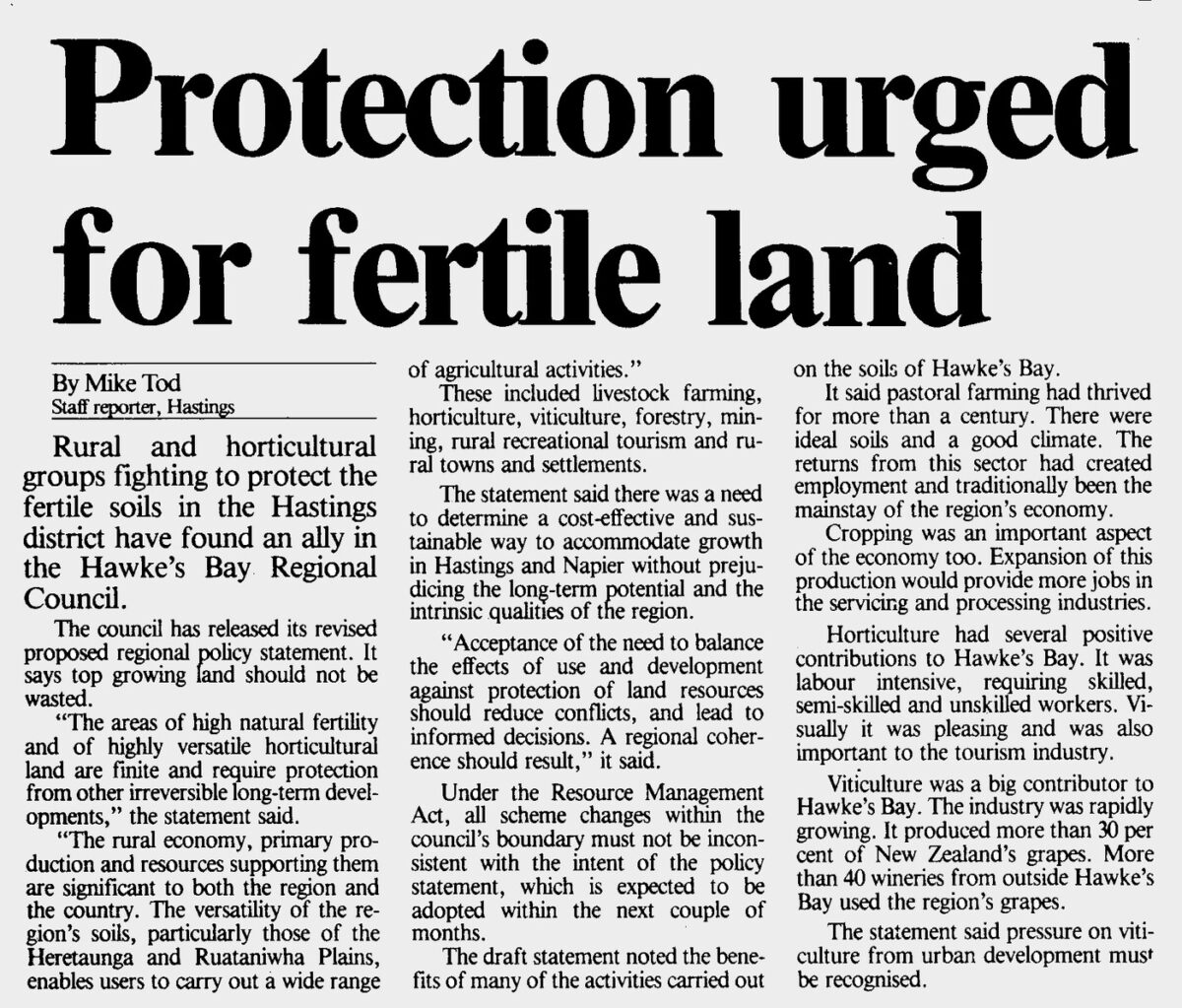Protection urged for fertile land
By Mike Tod
Staff reporter, Hastings
Rural and horticultural groups fighting to protect the fertile soils in the Hastings district have found an ally in the Hawke’s Bay Regional Council.
The council has released its revised proposed regional policy statement. It says top growing land should not be wasted.
“The areas of high natural fertility and of highly versatile horticultural land are finite and require protection from other irreversible long-term developments,” the statement said.
“The rural economy, primary production and resources supporting them are significant to both the region and the country. The versatility of the region’s soils, particularly those of the Heretaunga and Ruataniwha Plains, enables users to carry out a wide range of agricultural activities.”
These included livestock farming, horticulture, viticulture, forestry, mining, rural recreational tourism and rural towns and settlements.
The statement said there was a need to determine a cost-effective and sustainable way to accommodate growth in Hastings and Napier without prejudicing the long-term potential and the intrinsic qualities of the region.
“Acceptance of the need to balance the effects of use and development against protection of land resources should reduce conflicts, and lead to informed decisions. A regional coherence should result,” it said.
Under the Resource Management Act, all scheme changes within the council’s boundary must not be inconsistent with the intent of the policy statement, which is expected to be adopted within the next couple of months.
The draft statement noted the benefits of many of the activities carried out on the soils of Hawke’s Bay.
It said pastoral farming had thrived for more than a century. There were ideal soils and a good climate. The returns from this sector had created employment and traditionally been the mainstay of the region’s economy.
Cropping was an important aspect of the economy too. Expansion of this production would provide more jobs in the servicing and processing industries.
Horticulture had several positive contributions to Hawke’s Bay. It was labour intensive, requiring skilled, semi-skilled and unskilled workers. Visually it was pleasing and was also important to the tourism industry.
Viticulture was a big contributor to Hawke’s Bay. The industry was rapidly growing. It produced more than 30 per cent of New Zealand’s grapes. More than 40 wineries from outside Hawke’s Bay used the region’s grapes.
The statement said pressure on viticulture from urban development must be recognised.












Do you know something about this record?
Please note we cannot verify the accuracy of any information posted by the community.